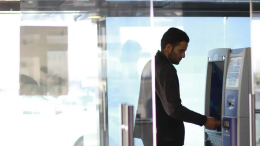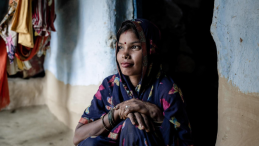UNU-CPR leads work on access to justice for migrants in the Global South as part of its contributions to the Migration for Equality and Development (MIDEQ) Hub. MIDEQ aims to transform understanding of the relationship between migration and inequality in the context of the Global South by decentering the production of knowledge about migration and its consequences away from the Global North towards those countries where most migration takes place. The research examines:
- The existence (or otherwise) of laws and policies relating to migrants and their families and the extent to which these deliver meaningful access to rights for those who move within the project's six migration 'corridors';
- The experiences of different migrant groups in accessing legal remedies to secure improved outcomes e.g. refugee protection, citizenship and nationality, employment rights, family reunion; and
- The relationship between rights and inequality outcomes, identifying and testing interventions which contribute to improved outcomes for migrants and their families and maximize the contribution of South-South migration to delivery of the Sustainable Development Goals.
Based on the findings of the research, the project also implements a series of impact initiatives and interventions aimed at ensuring that the findings of the research contribute to delivery of MIDEQ’s overarching Theory of Change.
The objectives and expected outcomes for this project are as follows:
- To develop a research-led understanding of the injustices faced by migrants in the Global South including the barriers to formal State-led justice mechanisms;
- To explore alternative pathways to justice (e.g. through customary law) as well as mechanisms for ensuring that migrants have knowledge of the rights available to them (e.g. through information sharing and community legal empowerment), with a focus on Haiti and Brazil;
- To develop a Justice Chain Analysis approach which enables the systematic identification of barriers and enablers in the Global South, and to pilot this approach in South Africa, with a focus on the experiences and needs of undocumented Ethiopian children;
- To work with the Migrant Justice Institute on building Civil Society capacity to strengthen migrant workers' access to justice for wage theft;
- To work with UN Human Rights on identifying the potential of strategic litigation to secure access to justice for migrants in the Global South; and
- To produce a range of different outputs (policy briefs, research reports, discussion papers, blogs) that can support Global South governments, UN agencies, international organizations, NGOs and civil society organizations in the Global South to increase opportunities for migrant rights, with the aim of improving outcomes for migrants and their families and maximizing the contribution of migration to development.
Among the beneficiaries of this project will be migrants and their families, especially in Haiti, Brazil, and South Africa where the A2J impact initiatives are taking place, UN agencies and international organizations seeking to enhance engagement with, and strengthen the impact of, policies and programmes aimed at improving migrant rights in the Global South, and governments of countries in the Global South looking to address rights issues associated with migration.
Research outputs:
- Project team
- Heaven Crawley



